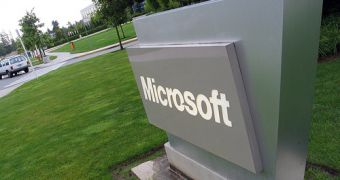Microsoft, Cisco and EMC, have joined forces under the Secure Information Sharing Architecture (SISA) umbrella, for an initiative designed to produce a technology architecture to enable the protection and secure sharing of sensitive information. While SISA is focused on delivering solutions for the government, Microsoft informed that the public sector will not be overlooked. The company aims to no less than revolutionize the current standards of data security and sharing with a breakthrough in sensitive information exchange. The technology architectures from SISA will bundle together multivendor security solutions and information-sharing products with the networking infrastructure in order to deliver enhanced protection.
"While government is attempting to break down the barriers between organizations to enable information sharing, it is also struggling with numerous high-profile data loss incidents. Breaking down barriers between government and partner organizations will require better confidence in the ability to keep information in the hands of only the appropriate users," said Steve Cooper, former chief information officer for the U.S. Department of Homeland Security. "I applaud Cisco, EMC and Microsoft for coming together to provide us with a multivendor architecture for sharing information across different agencies so government agencies can collaborate better and respond more effectively where and when they are needed."
Cisco, EMC and Microsoft are the three main pillars of SISA. Core technologies from all three companies will be situated at the heart of the SISA offerings designed to streamline information sharing across disparate infrastructures. "Through its industry-leading networking solutions, Cisco provides network protection, security-enhanced virtualized network links, and data protection features for sharing sensitive information across the network platform. EMC's networked storage systems, information management and security software provides a flexible information infrastructure for storing, managing and helping protect critical and sensitive data. Microsoft provides identity management, client and network operating systems, and a collaboration framework that helps keep content in the hands of authorized users," Microsoft revealed.

 14 DAY TRIAL //
14 DAY TRIAL //